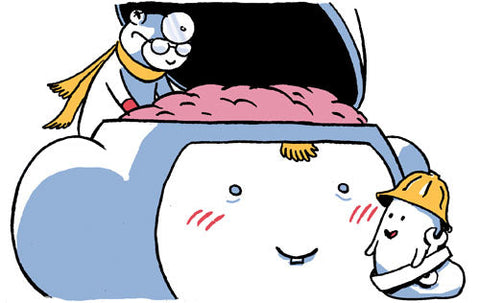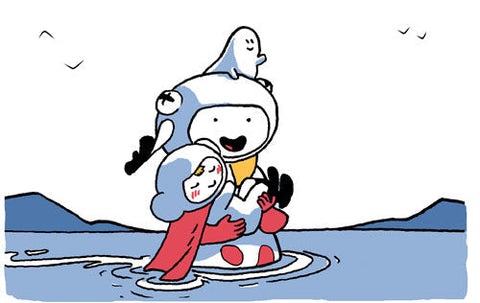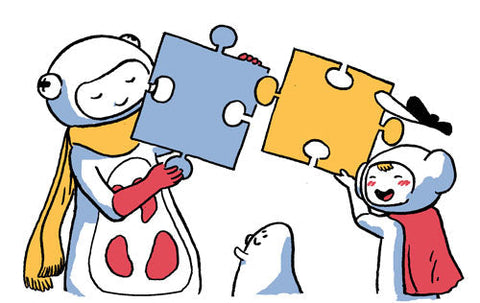‘Product Manager’ is one of those roles that can look completely different in every organisation. There are numerous organisation structures and methodologies that can be used to deliver products, all of which will have a bearing on what the Product Manager’s day-to-day looks like.
But there are some key features of every Product Manager’s role. And some key skills that make for the best Product Managers, too! Let’s dive into the world of product management - and find out what the wonderful Pip Decks community thinks makes a great Product Manager.
What are a Product Manager’s tasks?
We explored the things a Product Manager should do in their first 30 days in the role. But what happens after that? What’s ‘business as usual’ for a Product Manager?
Different organisations will have different individuals and teams working on a product, and the Product Manager will be one of the main points that ties those together. For example, they may be overseeing or working alongside teams such as user research, sales, operations, deliverables, tech/dev, project management, finance, and more. There is a lot of stakeholder management required. Though the role is varied, some of the most important things that every Product Manager needs to do (or at least ensure that someone is doing) include:
- Meeting users and understanding their needs, their challenges, their motivations and the user journey. This can include overseeing a research team, and ensuring that the learnings are communicated throughout the team.
- Setting and ensuring the team follows the product roadmap. This means prioritising effectively, or ensuring that the team is doing so. It can also mean ensuring team cohesion and efficacy, for example by helping develop a team charter.
- The Product Manager is also responsible for the backlog; managing it, prioritising it and ensuring that it is completed to the point where release is not only possible, but likely to succeed.
- They should be regularly and proactively reviewing user support tickets for trends and sticking points, and to ensure the user support process is working seamlessly.
- Ensuring deliverables are monitored and on track at all times, and that everyone knows what their responsibilities are to ensure that this remains the case!
- Market monitoring and analysis, in order to make sure that the product’s trajectory works in future contexts, too.
- Making robust, evidence-based decisions using qualitative and quantitative data.
What are a Product Manager’s goals?
Product Managers aim to deliver quality products. But there is so much more to it than that. By delivering great products, they also improve the whole business’s performance and prospects.
What makes a great Product Manager?
So many people in the Pip Decks community gave the same answer to this question. The one magical trait that makes for a fantastic product manager?
Humility
Dave, Author of Team Tactics (available for pre-order!), recounted something a Product Manager once said: "They told me ‘I need to be the most stupid person in the room’. They gave themselves permission to ask the questions that everybody else wanted to”. Katie Tucker said “I think being comfortable with not knowing everything. The default being that it's fine not to have all the answers".
Charles, Author of Workshop Tactics, explains why he thinks this is such an important trait: “Ego is at the heart of a lot of bad product management. Decisions made because they care more about how they look, rather than the good of the team.”
It’s easy to see the value of being able to empathise with the end user, but there’s no good understanding them if you can’t bring the team along on that journey, too. Brett Evans said “A good Product Manager adjusts how well the product meets the users’ needs, and performs this by conveying the users’ story to the delivery team. So one thing that makes a great Product Manager is being a great storyteller”. That might sound like an innate skill (and it often is), but you can learn it, too - if you’d like to use more storytelling in your work, Storyteller Tactics might be for you.
Arthur Zablocki agrees: “A great Product Manager is someone who is never in love with their ideas. As the speed of technological advancements increases (and computational power doubles every 12-18 months), it’s paramount to be often revising one’s ideas, regularly seeking feedback from likely, future users. Companies became irrelevant at record speed because they fail to continue innovating. Their ideas become nothing more than mere features that others are able to quickly introduce to their platforms. A great Product Manager is also fully aware of his/her limitations and is able to openly seek help from others, especially when dealing with strict deadlines.”
Innovation
Interestingly, this raised a discussion about the role of a Product Manager vs a project manager, particularly in relation to risk vs innovation. Chris Butler said: “Innovation is a really interesting aspect of product management. I’d say Product Managers are on the other end of the spectrum from Project Managers, who are focused on risk reduction.”
Arthur agrees: “The Product Manager is there to identify the potential direction for product development that could open up a new (or reactivate an old) revenue stream for the company, while the Project Manager is responsible for ensuring that this particular idea is implemented swiftly and accurately. Both roles impact the bottom line tremendously.”
People skills
There were a few other traits and skills that came up repeatedly, too. Curiosity, for example. Laura Clarke said “Many product owners don't have the same understanding of the domain as the users do”, which is why it’s so important for them to explore other perspectives with an open mind. “And empathy; many product owners haven't done the job/task of the users. With these characteristics, the product owner can be a positive advocate for what the users need”. And we’ve all seen the story of what happens when Product Managers and their teams think they know what consumers want, but don’t actually find out.
Josh Trauberman added to Laura’s list: “Two other traits I look for with great PMs I've hired have been Diplomacy and Confidence. Someone with all four of these soft skills is a rare find, but worth it as they make for the best Product Managers out there”.
There are a lot of ‘people skills’ tied up in these traits, too. The ability to convince, persuade and influence are certainly useful, but also the ability to inspire and empower others.
Joel, Author of Ideas Tactics, also recommended this fantastic Twitter thread by start-up advisor Shreyas Doshi: Good Product Managers vs great Product Managers. We’ve written about some of the attributes he describes as being typical of great Product Managers: knowing how and when to delegate responsibility and getting the team involved in setting OKRs, for example.
And finally - the eagle-eyed among you may notice there is no mention of methodology or team structure here. That’s because you can be a great Product Manager regardless of methodology. You have to find what works for you and what works for the project at hand - and sometimes, you’ve just got to work with what you’ve got.
What to read next about product management?
If you want to know more about the world of product management, you could do a lot worse than to check out some of these suggestions from our wonderful community!
- Tom (Author of Innovation Tactics - get on the waiting list!) recommends Creativity Inc by Ed Catmull. Tom says “To me it's a rare business book. It doesn't pretend there is 'the right way' – it shows that the process and the way you work and everything are about constantly evolving together, constantly solving new problems, responding to new crises and opportunities”.
- Daniel recommends Product Management in Practice (by Matt Lemay) and Product Roadmaps Relaunched (by C. Todd Lombardo, Bruce McCarthy, Evan Ryan and Michael Connors).
- Randolph suggests Inspired by Marty Cagan.
- Gaurav enjoys the articles on the GoPractice blog, too.









